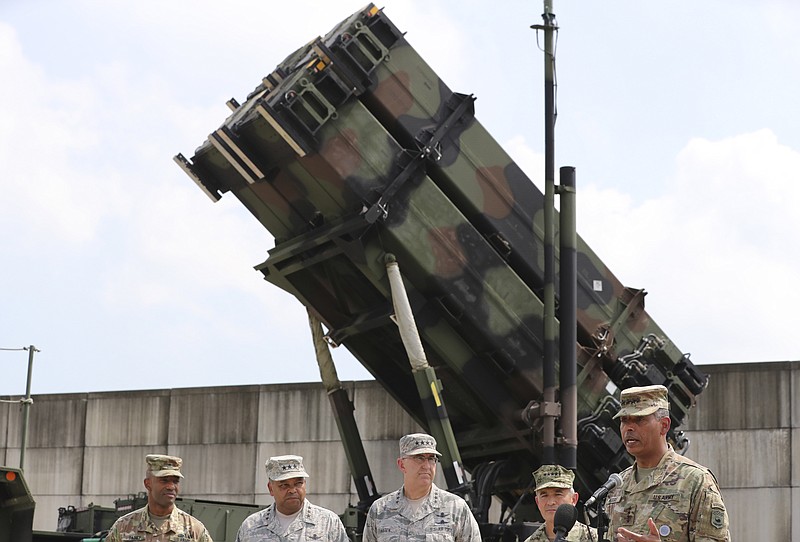WASHINGTON (AP) - House Republicans and Democrats joined forces Tuesday to decisively approve a defense policy bill that authorizes $700 billion to restock what lawmakers have described as a depleted U.S. military and counter North Korea's advancing nuclear weapons program.
Lawmakers voted 356-70 to pass the legislation, with 127 Democrats backing the measure. Once the defense bill clears the Senate, which is expected this week, the bill will be sent to President Donald Trump for his signature.
The defense bill for the 2018 fiscal year allots some $634 billion for core Pentagon operations and nearly $66 billion for wartime missions in Afghanistan, Iraq, Syria and elsewhere. The funding boost pays for more troops, jet fighters, ships and other weapons needed to halt an erosion of the military's combat readiness, according to the bill's backers.
Trump's 2018 request sought $603 billion for basic functions and $65 billion for overseas missions. But securing the higher amounts remains contingent upon Congress reaching an agreement to roll back a 2011 law that set strict limits on most federal spending. That's a lot harder than it sounds, however. Lifting the budget caps will face resistance from Democrats who also are seeking to increase the budgets for domestic agencies.
Rep. Adam Smith of Washington, the top Democrat on the House Armed Services Committee, voted for the bill while also criticizing Congress for refusing to come to grips with its out-of-control approach to budgeting. Smith said it's inconsistent for Republicans to push for billions of dollars more in defense spending while also advocating tax overhaul legislation that will deepen federal deficits over the next decade.
Even if Congress had a "fit of fiscal responsibility" and decided to raise revenue instead of cutting it, Smith said, "we're still looking at needs within the national security budget that are wildly beyond the amount of money that we have."
Republicans insist tax cuts will essentially pay for themselves by spurring economic growth. But the Armed Services Committee chairman, Rep. Mac Thornberry, R-Texas, urged his colleagues to focus on the military's immediate and substantial needs.
"It is morally wrong to send men and women out on missions with our military, for which they are not fully supported, fully trained, (and) equipped with the best equipment our country can provide," he said.
The defense legislation includes $12.3 billion for the Pentagon's Missile Defense Agency and orders a more rapid buildup of the nation's missile defenses as Pyongyang has refused to back away from developing nuclear missiles capable of striking the United States.
The bill includes money for as many as 28 additional Ground-Based Interceptors, which are anti-missile missiles that would be launched from underground silos in Alaska in the event the U.S. decided to try to shoot down a North Korean missile heading toward the United States. The interceptors are designed to directly hit the enemy missile outside the Earth's atmosphere, obliterating it by the force of impact.

